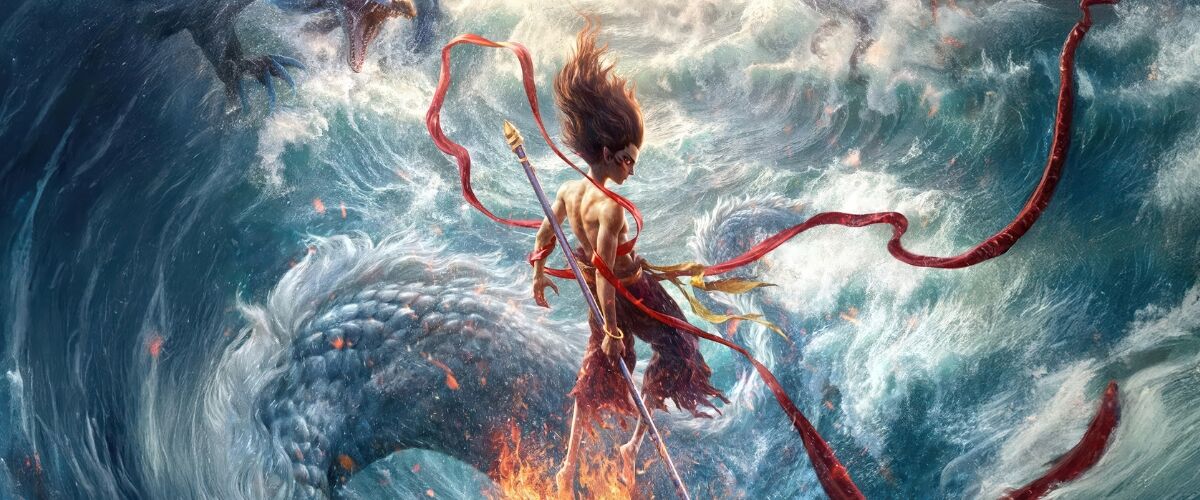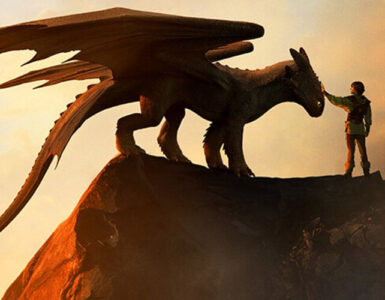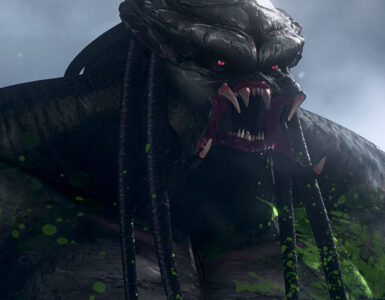Audiences outside of China may not even know much about prominent Chinese protection deity, Nezha (哪吒), from Chinese folklore, but there is no escaping China animated film Ne Zha (2019) and its hit sequel, Ne Zha 2, which has had a meteoric rise at the global box office since its debut in January 2025. Loosely based on a 16th-century Chinese novel that tells of, among many things, Ne Zha’s origins, no one would predicted that the sequel would rise to the top of the global box office as the highest-grossing animated movie and franchise of all time. Even as Hollywood circles continue to track the fate of superhero tentpoles and franchise fatigue, writer and director Yang Yu’s (a.k.a. Jiaozi) Ne Zha 2 has quietly rewritten box office records, at least from a Western perspective.
Surpassing Disney’s Inside Out 2 as the highest-grossing animated film in history and even breaking the US$1 billion mark grossed by a film from a single country (a feat previously held by 2015’s Star Wars: The Force Awakens in the U.S.), Ne Zha 2 defied expectations to become a cultural juggernaut. What began as a sleeper hit released during the Lunar New Year holiday season has now transformed into an unshakable phenomenon, especially since it’s a sequel to a Chinese animated mythological fantasy with no cultural recognition outside of China and Asia, and with almost no traditional Western marketing footprint.
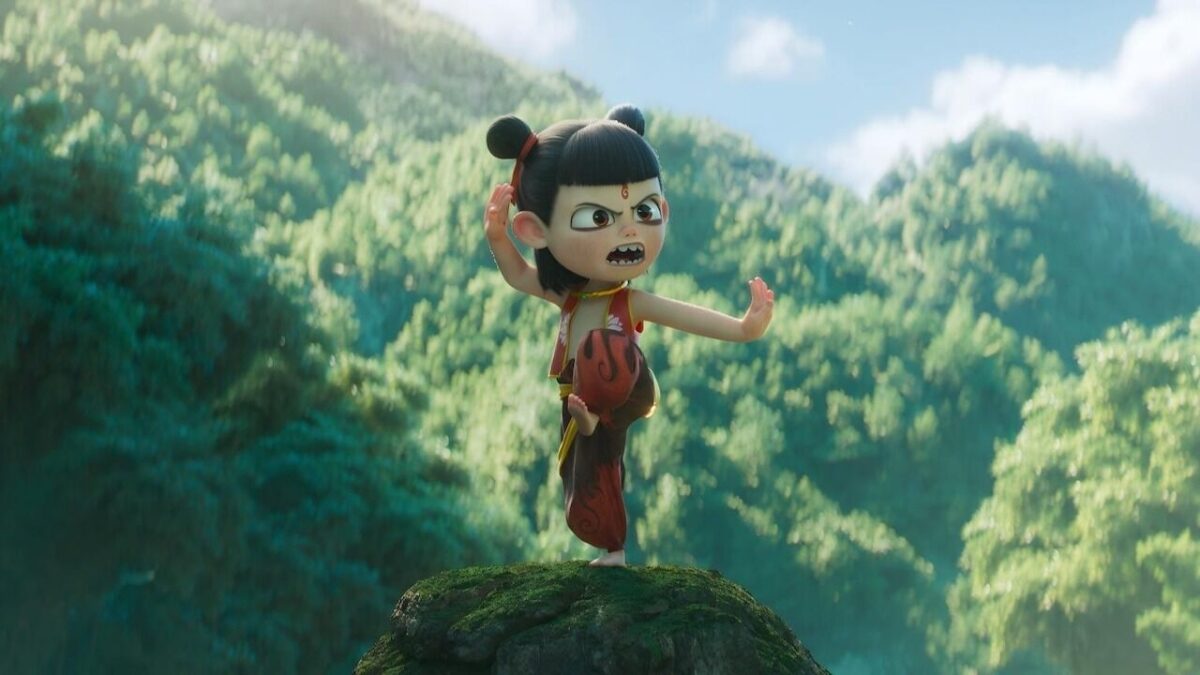
Part of the film’s power lies in how it reclaims and reimagines centuries-old mythology for a modern audience. Ne Zha, a figure rooted in the 16th-century novel Investiture of the Gods (封神演义) by Lu Xixing and Xu Zhonglin, has been adapted in countless forms – from Chang Cheh’s 1974 martial arts interpretation to animated TV serials like The Legend of Nezha (2003-2023). But few have captured the energy of the myth quite like the Jiaozi-directed 2019 film in his directorial debut, which reshaped Ne Zha’s origin story with high-octane animation, striking character design, and a refreshing emotional arc.
Returning audiences will likely appreciate how Ne Zha 2 pushes its mythology forward. The film doesn’t waste time rehashing the events of the first instalment, barring a short opening sequence that summarises whatever came before. Instead, it assumes familiarity and charges ahead with relationships and divine conflicts already in motion. At its heart is the fragile bond between Ne Zha (Lü Yanting, G for Gap / Joseph Cao, Run, Tiger Run!) and Ao Bing (Han Mo, Master of the Star Spring), whose entanglement with the Demon Orb and Spirit Pearl (birthed from primordial essences) continues to define their fates. Their reconciliation in the previous film came at great cost, and Ne Zha 2 treats that history as unresolved, their friendship constantly threatened by external manipulation and internal doubt.
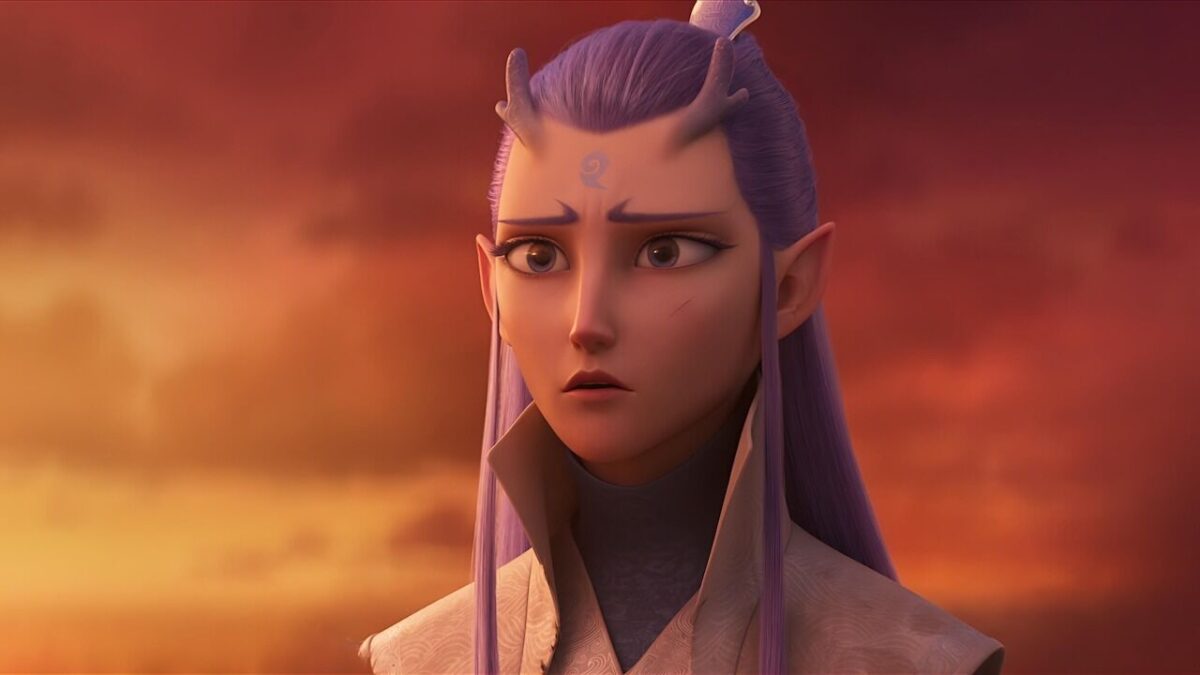
Master Taiyi (Zhang Jiaming, Monster But Wild), once again providing comic relief as a hapless yet well-meaning Taoist immortal, sets events in motion by crafting a Seven-Coloured Sacred Lotus for the duo to regenerate their physical bodies, now destroyed after being struck by heavenly lightning together in the preceding film. Before Ne Zha can test his, he’s thrown into conflict by Shen Gongbao (Yang Wei, Ne Zha), an estranged leopard warrior-priest turned antagonist whose loyalties now lie with a trio of scheming dragons. Their manipulation of Shen plays into a larger power struggle: one that implicates even the Dragon King of the East Sea, Ao Guang (voiced by Li Nan in dragon form, and Yu Chen in human form) whose motives are heartbreakingly personal. His only goal is to save his son Ao Bing, spiritually bound in Ne Zha’s body after he sacrifices his newly forged body to protect Ne Zha’s home, Chentang Pass.
When Ne Zha and Ao Bing alternate control, the animation smartly communicates who’s at the helm without spelling it out. Ne Zha’s usual gawkiness, jittery limbs, and unruly expressions give way to Ao Bing’s calm precision, measured voice, and grounded movements. The transformations are visual cues that double as emotional ones, quietly reinforcing the tension between personalities. It’s one of the most inventive choices in a film already brimming with spectacle, but it also fades too quickly, confined to a stretch of trials that spans the film’s midsection, where Ne Zha attempts to complete these tests to become a xian (仙 or ‘deity’) and win a potion that can restore the Sacred Lotus and create a new body for Ao Bing.
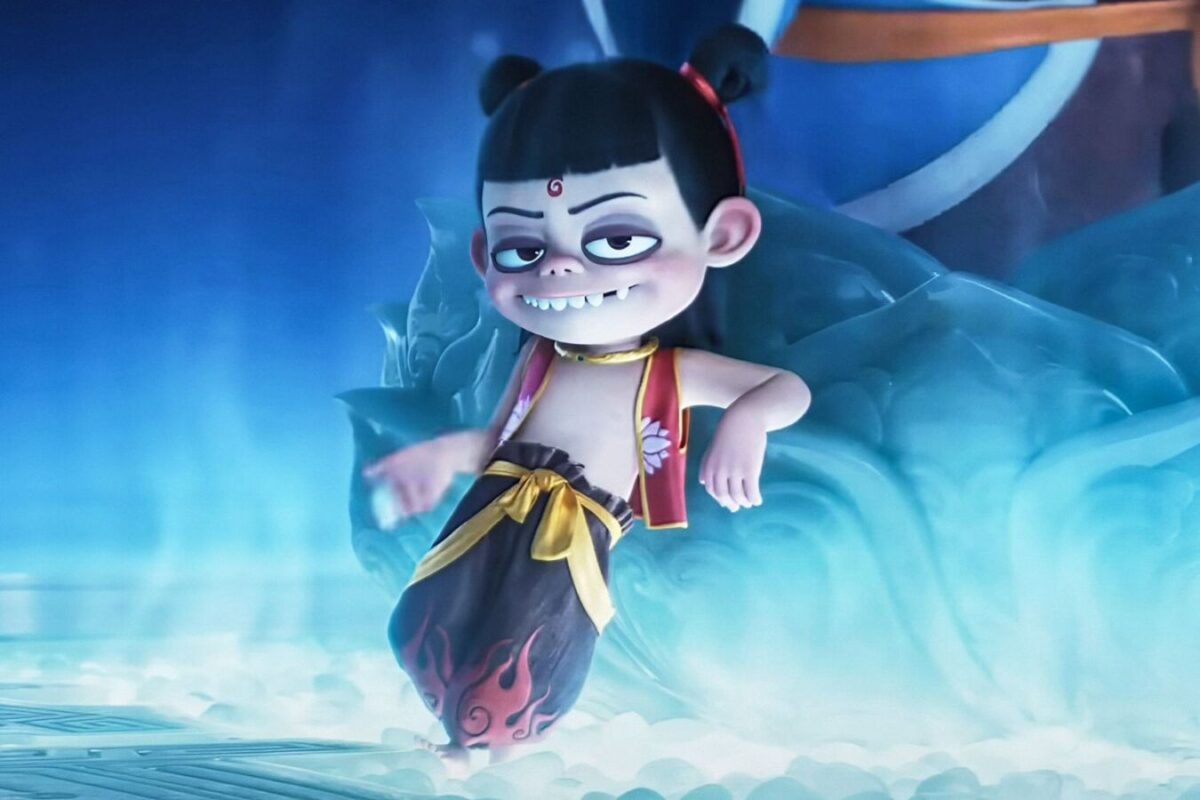
The trials themselves lean hard into chaos, swinging between high fantasy and toilet humour with unapologetic glee. At one point, Ne Zha vomits his way into strength… literally; in another, he stops short of drinking sacred water after finding out it’s his own urine. It’s crass, juvenile, and absolutely committed to the bit – whether you find it hilarious or grating might depend on your tolerance for bodily fluids. American viewers familiar with Dreamworks Animation’s Shrek (2001) may find the comparison apt, though Ne Zha 2 is arguably even less filtered.
Ne Zha himself has matured, somewhat. Gone is the bitter loner from the first film, replaced with a version that still bristles at authority but seems more aware of what’s at stake. There’s a sense that he remembers the consequences of his power, even if he never says it out loud. As new mythic forces move into place (divine artefacts, shifting allegiances, resurgent enemies…), he begins to resemble less a rebellious protagonist and more a player in a much larger, cosmic conflict. His emotional journey takes a back seat as political machinations and spiritual trials take centre stage, but the film never completely loses sight of the little boy who once just wanted to be understood.
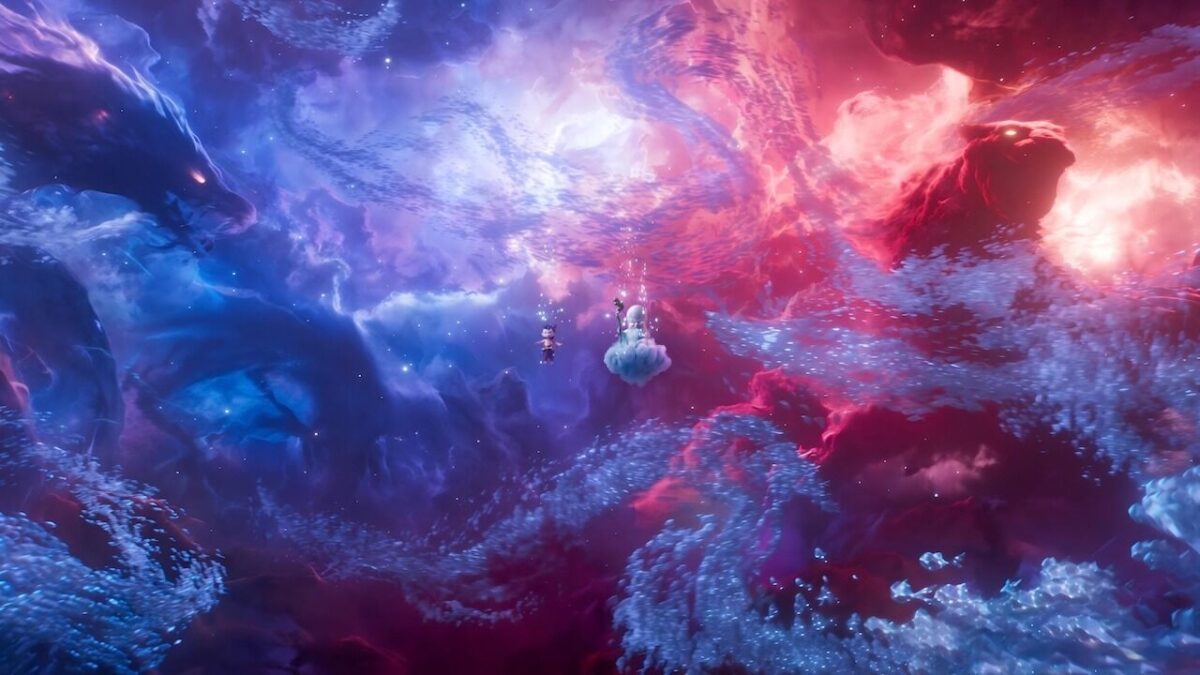
For a while, the film seems content to skate on dazzling set pieces and cosmic-level stakes, only to land a gut punch somewhere near the two-hour mark. A final showdown between gods and mortals is interrupted by something far smaller and more intimate: a sudden, vulnerable, and deeply human gesture from Ne Zha’s parents that repositions the entire emotional arc. The emotional shift hits harder precisely because it’s not overplayed. Voice performances, especially from Qi Lü (Run, Tiger Run!) and Hao Chen (Sword of Coming) as Ne Zha’s parents Lady Yin and Li Jing, respectively, are restrained but potent. Once Ne Zha completes his final transformation and stands revealed in his full power – no longer torn between demon and immortal, but something uniquely his own – the film stops being about mythic duty and starts feeling like a personal reckoning. There’s no need for words in those final beats. You just watch.
It’s a bold move, given how wildly ambitious the rest of the film is. Chinese animation studio Chengdu Coco Cartoon reportedly brought on over 4,000 artists who put together 1,900 special effects shots to realise this vision, and it shows. Every frame feels calibrated to overwhelm, in scale, detail, and sheer kinetic energy. The final act feels like someone fed Marvel’s Avengers: Endgame (2019) through a mythological blender, then painted the result with reverence only attained with a personal understanding of Chinese culture. From dragons cutting through clouds and entire cities collapsing inside city-sized cauldrons to celestial armies floating like storm clouds about to break, its spectacle is nothing short of massive.
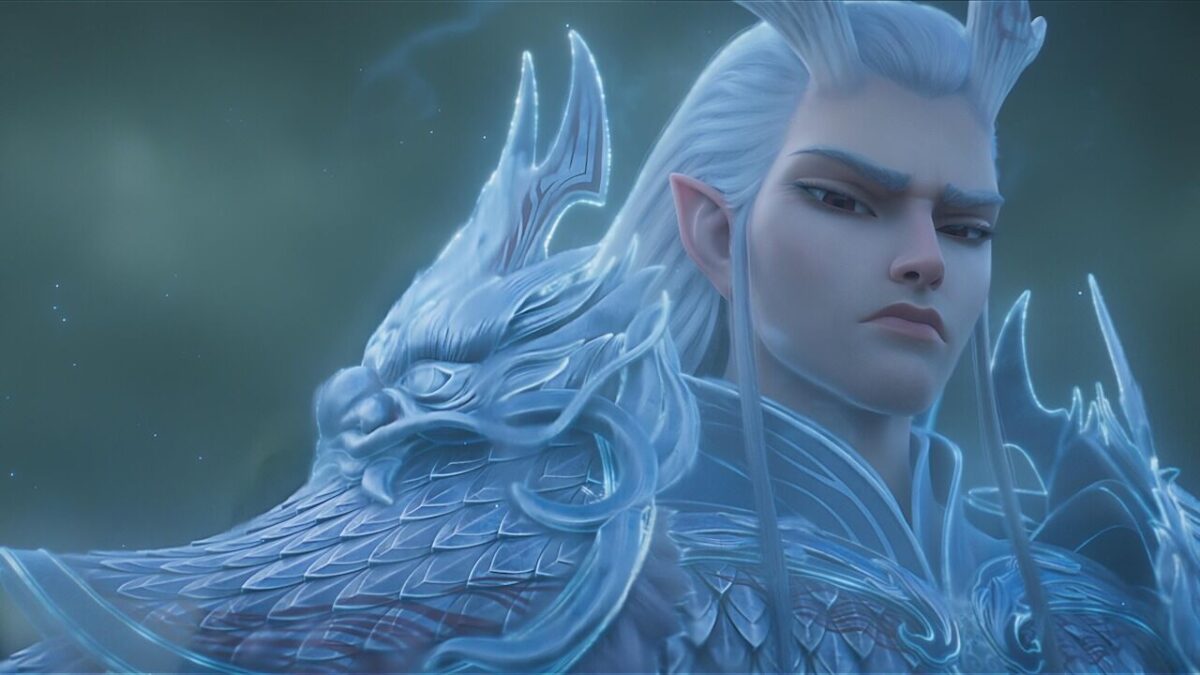
And what makes that scale work is how tightly it’s fused to emotion. For all the gods and monsters on display, it’s the smaller choices that give the film the weight it carries. Whether you’re steeped in the lore of Investiture of the Gods or stumbling through names and titles, the film extends just enough hand-holding to keep you close, without ever pandering.
At a time when global animation is still viewed through an Anglo-American lens, Ne Zha 2 kicks the door wide open, reminding us that animated cinema doesn’t just belong to children or the West. Western audiences might find themselves confused by a flurry of introduced-then-vanished supporting characters, or wonder why some plot threads seem to spiral into nothing but this is folklore, so please keep up.
Nothing else matters when the ride is this electrifying.
GEEK REVIEW SCORE
Summary
For an audience fatigued by overly meta franchise fatigue, Ne Zha 2’s earnestness feels like a feature, not a flaw. It’s not subtle. It’s not particularly elegant. But it doesn’t need to be. It’s something rarer: myth made vivid, without apology.
Overall
8.4/10-
Story - 8/10
8/10
-
Direction - 8/10
8/10
-
Characterisation - 8.5/10
8.5/10
-
Geek Satisfaction - 9/10
9/10

